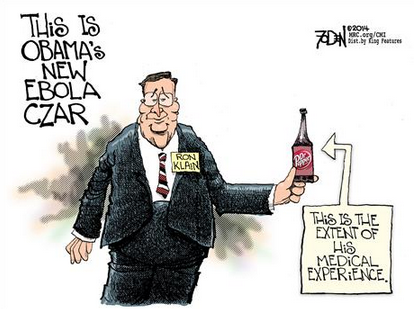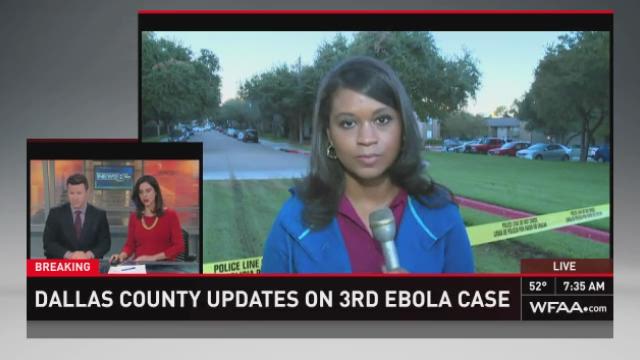Part 1 is here http://tinyurl.com/pklcmnv
While we watch the disaster unfold in West Africa, my attention is drawn to the homeland with increasing concern.
The continuous influx of travelers and the return of medical personnel from infected areas has led to some impromptu quarantines.
Sorry about that, but it is really just starting. With reports of people being tested all over the country, quarantines are about to be the norm.
To ms. Hickox, who recently claims to be a victim and says "My basic human rights' have been violated"..You for one should know how bad it is there in WA.
Your whining and threats of lawsuits, show you are being controlled in the background, the nerve to say these things.
You or anyone else's travel to that area puts you at risk then, and the rest of us at risk with your return. 3 WEEKS WON'T KILL YOU..Ebola just might.
As we have already seen, fellow drs and travelers cannot be trusted to self quarantine. Brave as you were to go, the mantle of hero requires you follow through with your slight
discomfort and inconvenience.
When you get back to Maine, after a hi dollar flight in a special plane.. just for you.. I hope you have the sense to stay in your damn house.
New reports are of a 5 yr old, fresh from Guinea, has presented in NY. He has a fever of 103, vomiting and the rest of his family is in quarantine. This should warm your little heart.
It is painfully obvious, CDC and homeland security protocols are not and will not be sufficient as they now stand.
To Dr Fauci, I met you at a H1N1 pandemic conference in DC a few yrs ago. I thought at the time, you were the smartest man there. I understand your current posture and the need to quell panic.
I disagree with your statements on the ability for ebola to turn airborne, or the constant speech about returning to a mandatory quarantine will discourage healthcare workers from going to help in Africa.
They will go anyway, a 3 week quarantine is nothing compared to the work that needs to be done or the protection it can bring to their own respective countries.. it is however, probably too late anyway.
The theory of stopping the outbreak in Africa will keep it from here, is a big dream.
You know, as well as I and others, that ebola is spreading at a phenominal rate. I have been tracking ebola for 10 years and this is no jungle outbreak.
By December sometime there could be 10,000 cases a week. A WEEK! Do you really think quarantining the travelers or drs, would not be prudent protection for our own country?
The seeds of the dandelion are spreading rapidly
Thats right.. 10,000 NEW cases a week. What is going to keep the people calm then? Lollipops and free beer?
The Promise of a new vaccine..that will never filter down to the reg people? what..in 2016?
Soldiers, govt, and drs will get anything that works first... the rest of the common men and woman will sweat it out.. Until you can actually test and mass produce an effective vaccine..which has nothing to do with present treatment now.
Plasma treatments and blood transfusions? Hospital beds? Where does the line start?..oh, back of the line?..here is some Gatoraide..mommy..I don't like that flavor.. You are about to have a huge mess on your public agenda
Flu season is here and there will be many patients and scares of ebola. Can you afford to test and quarantine every traveler or citizen that may have had contact with a suspected person? Leave them borders open and you are just asking for a revolt.
Poo poo while you still can. Stall till the obvious is upon them. West Africa is out of control and it is time for the rest of America to wake up.You are supposed to be telling them this! Before the new year starts you will have many actions to answer for .
to the WHO and U.N
No words can express how badly you have failed these countries during this outbreak. Now you have to step up and do what needs to be done.
Travel bans are coming. You will never have enough beds or drs to stop it. It is endemic there and still spreading.
Mali now, Ivory coast is next if not already. Do you need me to name a few more suspect countries for you? Do you need a few news reports?
You certainly don't mind me getting them for you for free.
The people are fleeing these areas and all of West africa, by hook or by crook, and it needs to stopped.. now.
I am not suggesting complete abandonment, but soon MSF will be overrun with patients, hell, they already are. Ever increasing numbers of nurses and drs will be
infected from lack of materials or rushed protocols, lack of rest, attacks on workers and a myriad of other situations.
Your hard choice is not really a choice. You already have plans to quarantine the whole area and you know it will have to be done. For the sake of the rest of the world, it will have to be done soon.
To the president
Klaim as ebola czar? Way to inspire confidence in the Gov't handling of this worldwide problem.
Oh, and don't run around saying that "I" only watch Fox news.
Your Gov't visits to my blog over the years have proven otherwise.
Good thing the army is building tents, but about that training of 500 volunteers a week? Better to bring more bulldozers and crematoriums.
part 3 soon..cold weather may ease airborne transmission, and other fun stuff!
All of You know how to reach me. Make it with a donation.







